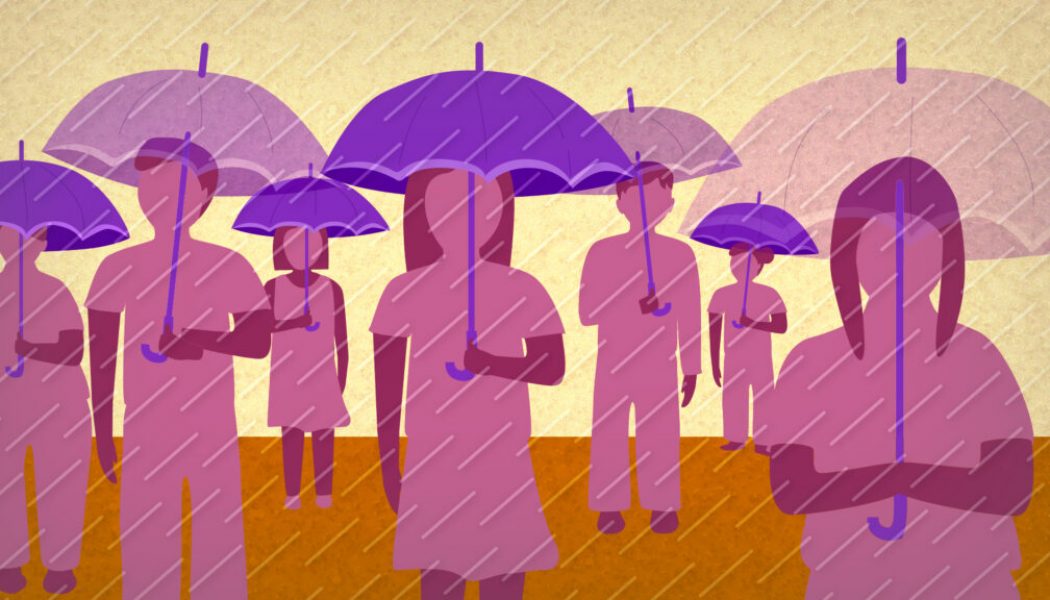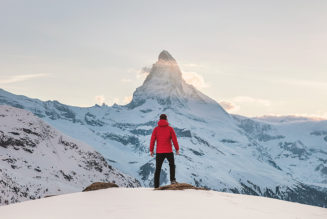
With a little luck and a lot of science, the world might in the not-too-distant future get vaccines against Covid-19. But those vaccines won’t necessarily prevent all or even most infections.
In the public imagination, vaccines are often seen effectively as cure-alls, like inoculations against measles.
Rather than those vaccines, however, the Covid-19 vaccines in development may be more like those that protect against influenza — reducing the risk of contracting the disease, and of experiencing severe symptoms should infection occur, a number of experts told STAT.
advertisement
“We all recognize that flu vaccine, in a year when it’s efficacious, you have what, 50% protection? And in a year when it’s poor you have 30% or less than that — and still we use that,” said Marie-Paule Kieny, who is chairing a committee advising the French government on vaccines to prevent Covid-19.
Ideally, vaccines would prevent infection entirely, inducing what’s known as “sterilizing immunity.” But early work on some of the vaccine candidates suggests they may not stop infection in the upper respiratory tract — and they may not stop an infected person from spreading virus by coughing or speaking.
advertisement
A recently released study in which macaques were vaccinated with one vaccine candidate — this one being developed by Oxford University and AstraZeneca — showed the primates were protected from Covid-induced pneumonia. But the macaques still had high levels of virus replicating in their upper airways. (The paper was a pre-print, meaning it hasn’t yet been peer-reviewed and published in a journal.)
Vincent Munster, who leads the team that conducted that study, said a vaccine that could mitigate the severity of the Covid-19 pandemic would still be a significant contribution in a world struggling to co-exist with a dangerous new virus.
“If we push the disease from pneumonia to a common cold, then I think that’s a huge step forward,” said Munster, chief of the virus ecology unit at the National Institute of Allergy and Infectious Diseases’ Rocky Mountain Laboratories in Hamilton, Mont.
The rush to develop vaccines means that ideal solutions may be out of reach in the immediate term; Munster said he anticipates seeing second-generation vaccines that could be more protective. Other scientists, though, are cautious about how much the world can expect from vaccines against this pathogen.
Michael Mina, an infectious diseases epidemiologist at Harvard’s T.H. Chan School of Public Health, thinks achieving sterilizing immunity with a vaccine will not be possible for Covid-19. Experience with human coronaviruses — and with multiple pathogens that cause colds — shows immunity that develops after infection with respiratory tract infections is not lifelong. In some cases, the duration is measured in months, not years.
“If [infection with] natural coronaviruses doesn’t do it, I don’t think that we should necessarily expect or have the anticipation that we’ll be able to get there with the vaccine,” said Mina, who is also associate medical director of clinical microbiology at Boston’s Brigham and Women’s Hospital.
Munster agreed trying to develop vaccines that confer sterilizing immunity would be a heavy lift with this coronavirus. “I think we really need to focus on what are the fastest achievable true public health goals of the vaccine, which is protecting the vulnerable people against pneumonia and protecting health care workers as well,” he said.
Earlier this week Moderna, the Cambridge, Mass.-based biotech, said eight people in a Phase 1 trial of its Covid-19 vaccine developed neutralizing antibodies to the virus.
Neutralizing antibodies should protect against severe Covid-19 disease, Kanta Subbarao, a vaccine expert who is director of the World Health Organization’s influenza collaborating center in Melbourne, Australia, recently wrote in a commentary in the journal Cell Host and Microbe.
But Subbarao told STAT she wouldn’t be surprised if neutralizing antibodies don’t protect against infection in the upper airways. Like Munster, she doesn’t think that’s reason not to pursue these vaccines.
“Converting this infection to a upper respiratory illness would be, I think, quite a lot better than where we are today,” said Subbarao, who worked on vaccines for SARS, a closely related coronavirus that caused an international outbreak in 2003.
Subbarao said setting public expectations of what these vaccines will be able to achieve is critical.
It would not be helpful if the type of perception that exists about flu vaccines — that they don’t work very well — sets in with Covid-19 vaccines. People don’t credit flu vaccines for what they prevent; they deride flu shots for not protecting them on the occasions when they contract influenza, even though they have been vaccinated.
“We can’t leave all that messaging until we know how good the vaccines are,” Subbarao said. “I think that will be the messaging, that we’re not going to prevent all infection. We’re going to prevent disease.”
The fact that the macaques that Munster’s group vaccinated and then infected had virus in their upper airways was viewed with dismay by some. But Munster noted the animals were infected with large doses of virus; whether the same will be true in people remains to be seen.
Some experts hope that even if the vaccines don’t prevent infection in the upper airways, they may reduce the amount of virus a vaccinated person generates and emits.
“Hopefully it would diminish — although we don’t know this — the levels of replication on the mucosal surfaces,” said Mark Feinberg, CEO of the International AIDS Vaccine Initiative, which is working to develop an orally administered Covid-19 vaccine. That route of administration may improve the vaccine’s capacity to protect the mucus membranes of the upper airways.
Mina sees a potential upside to Covid-19 vaccines that don’t stop infection and transmission, saying low-level circulation of the virus could act as a natural “booster” to keep people’s immunity levels high.
“Then you don’t necessarily have to keep going and getting a vaccine every year, for example. You could rely on some level of natural exposure as long as all the people who are at particular risk have been given the opportunity to be vaccinated as well,” he said.
But there’s the rub, warned Sarah Fortune, chair of the department of immunology and infectious diseases at Harvard’s School of Public Health.
“It’s a little bit sobering to see that, while we may get protection against disease [and] protect people from getting sick, we may not get nearly as effective protection against transmission,” Fortune said during a briefing Thursday for reporters. “Which means that to protect the population, we’re going to have to be vaccinating many, many more people, because we can’t rely on getting to a lot of people and having the epidemic die out through herd effects.”
Andrew Joseph contributed reporting.









